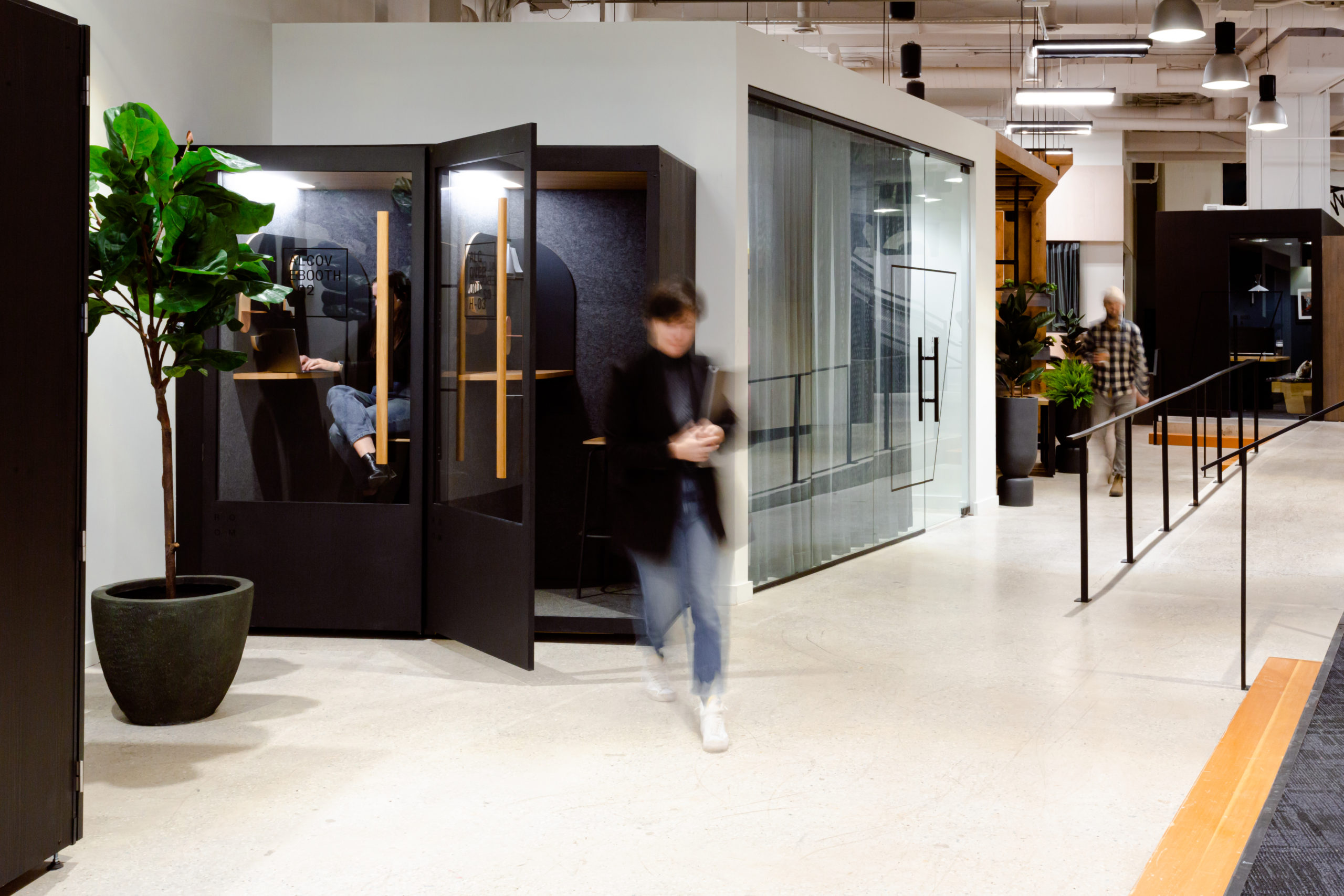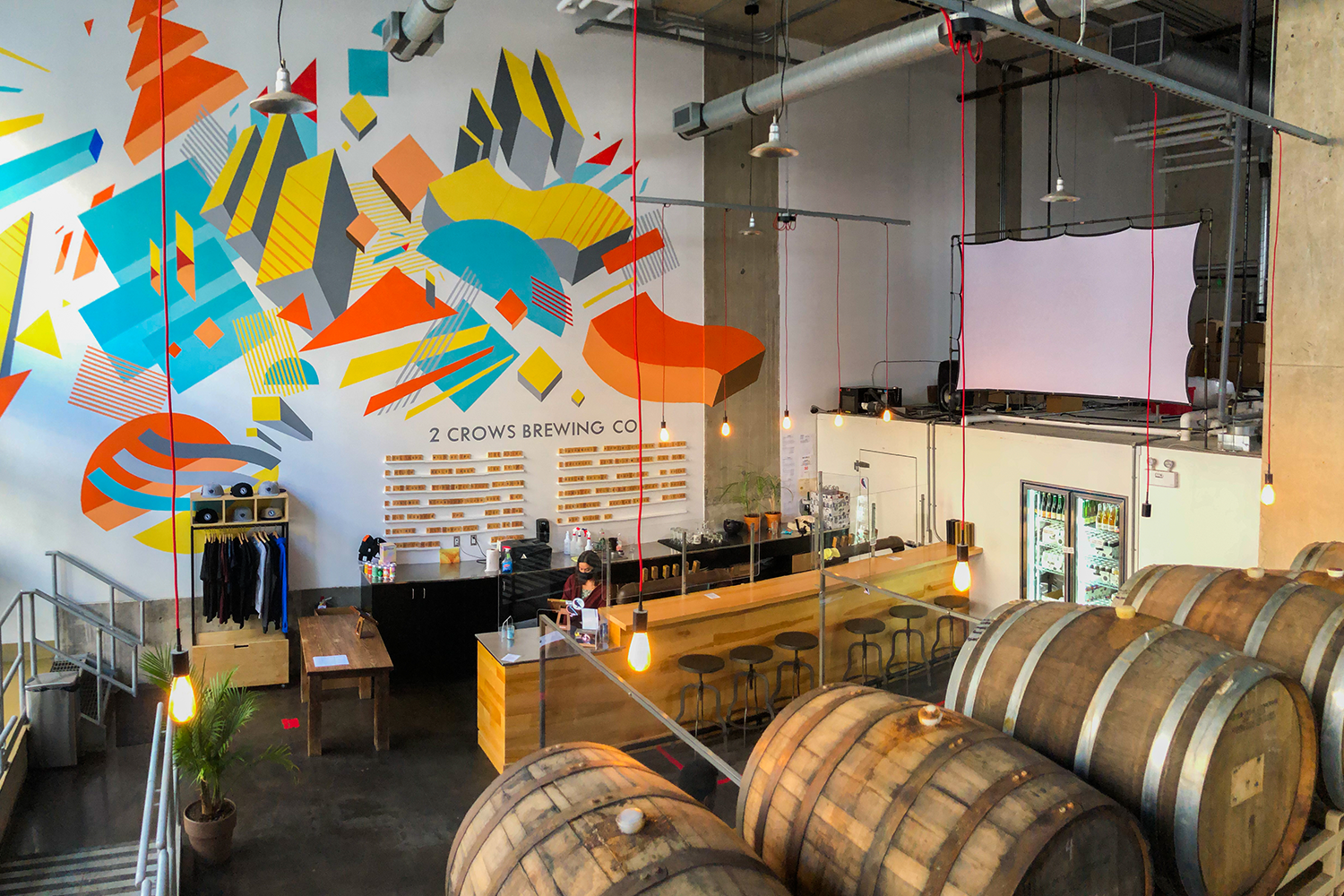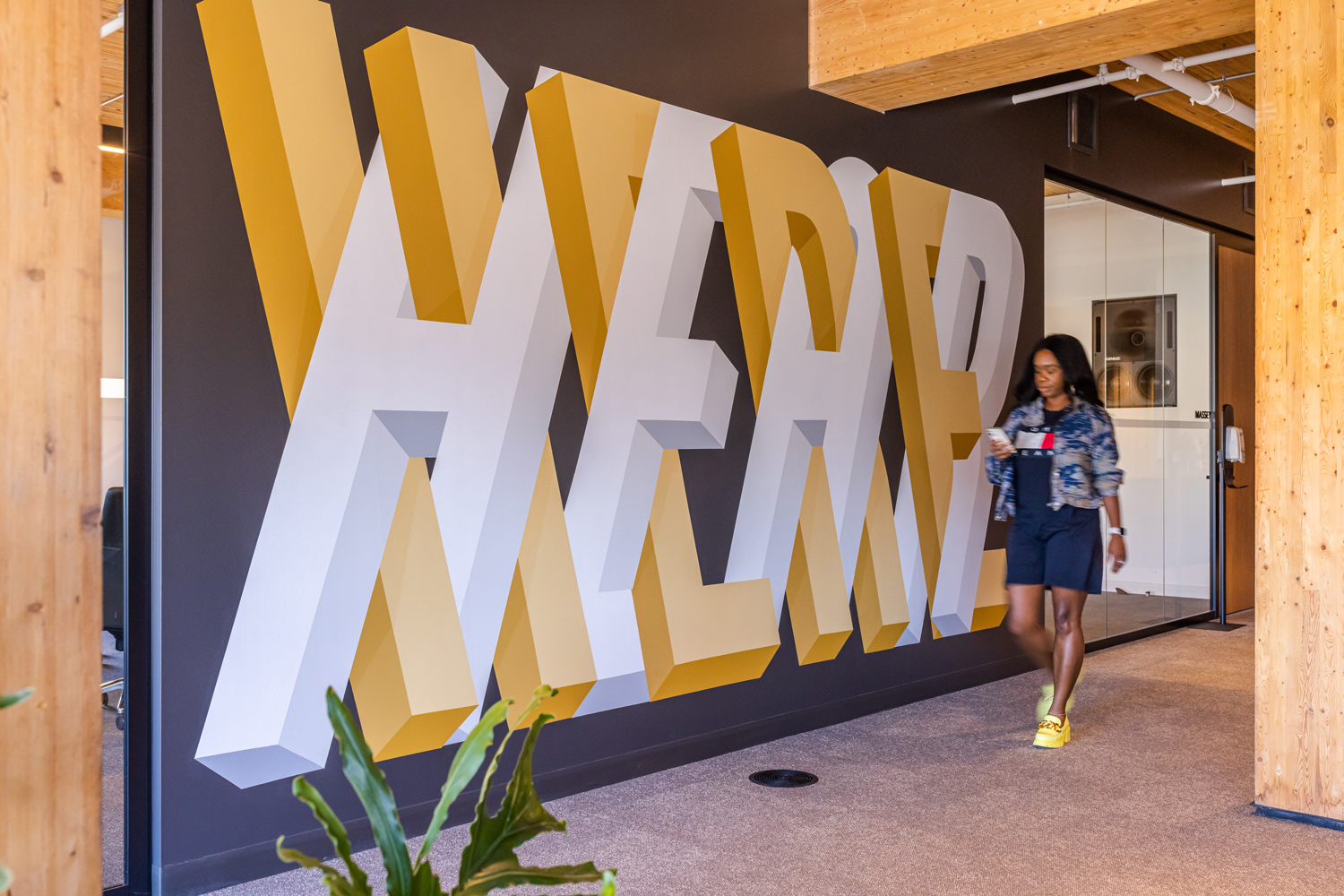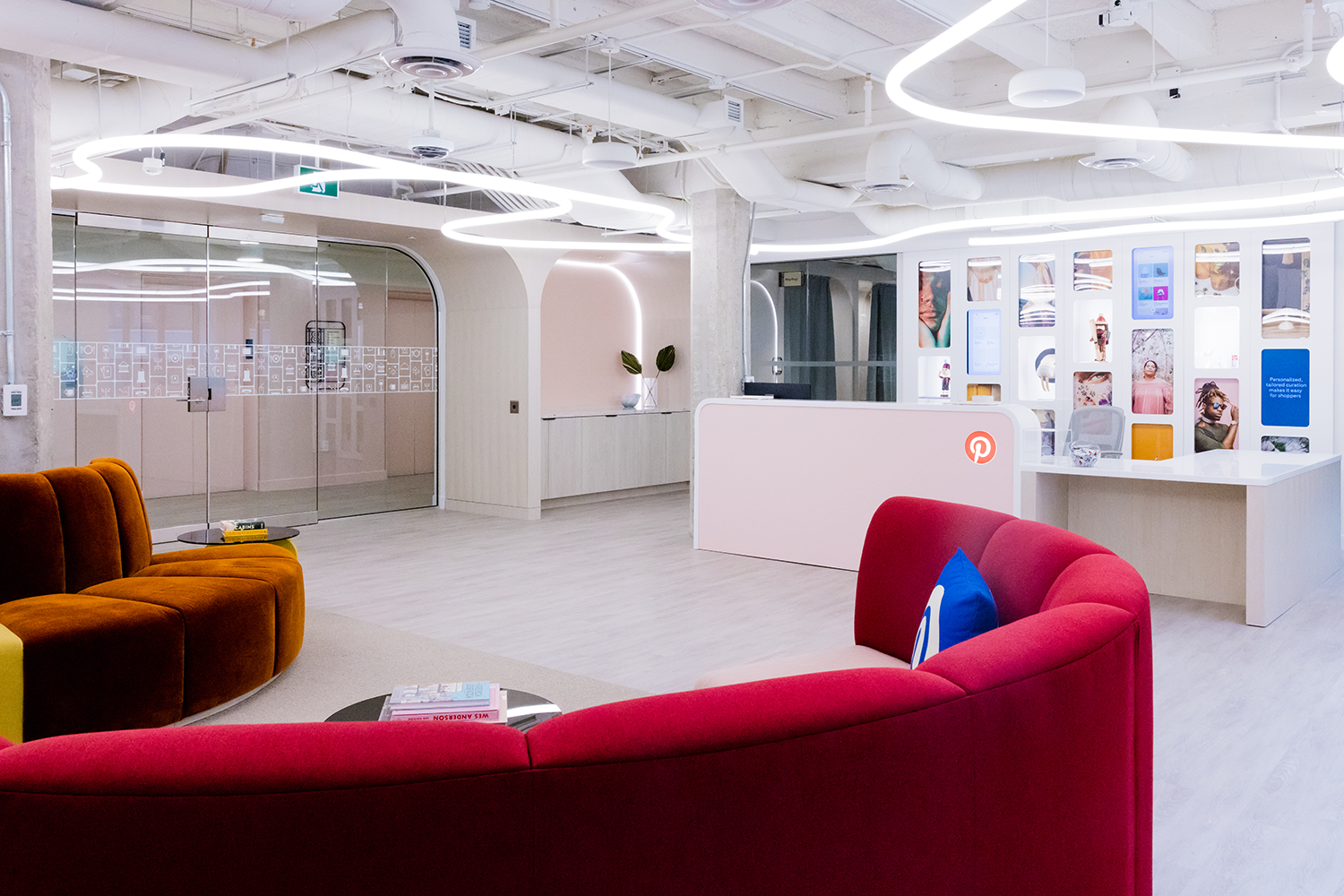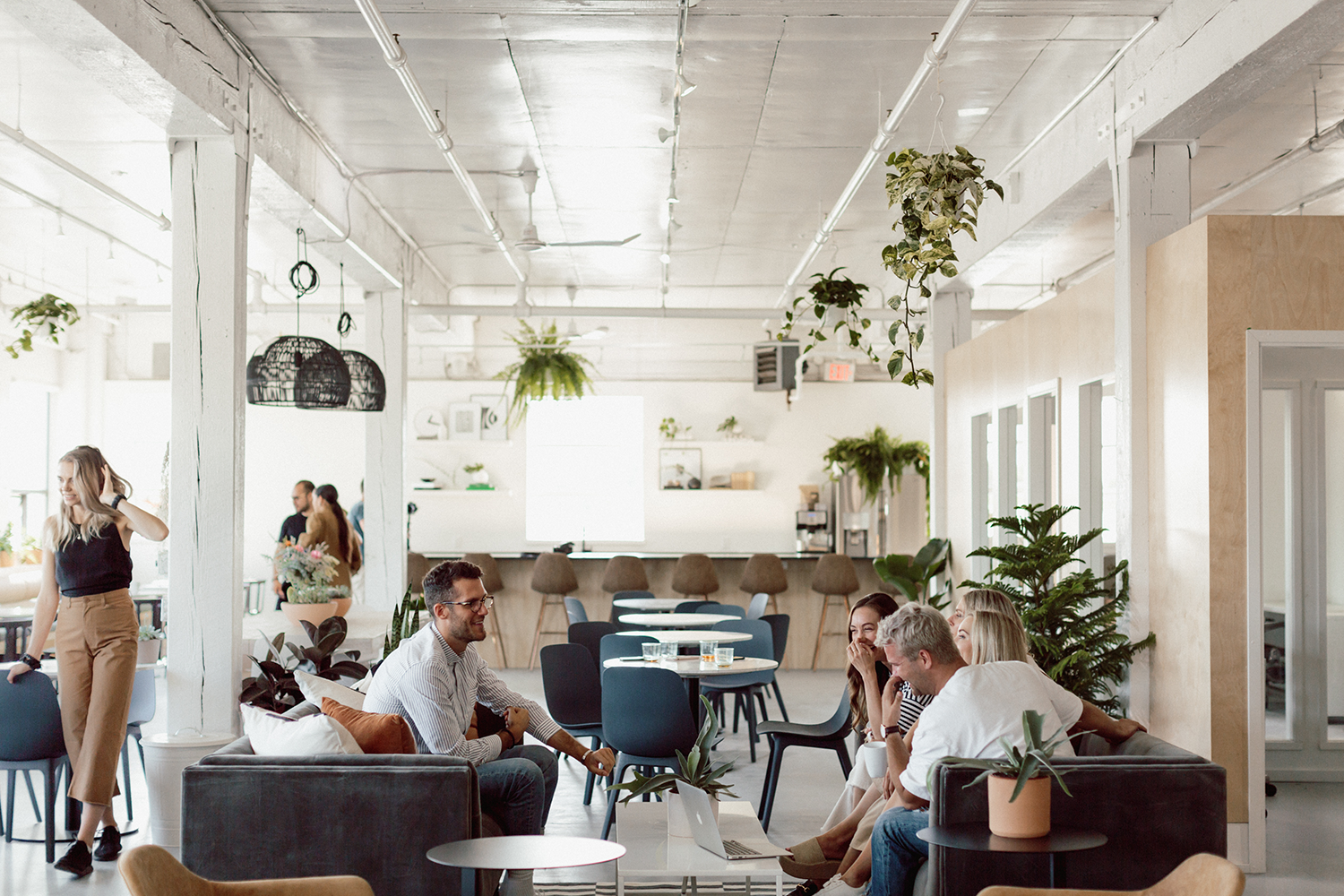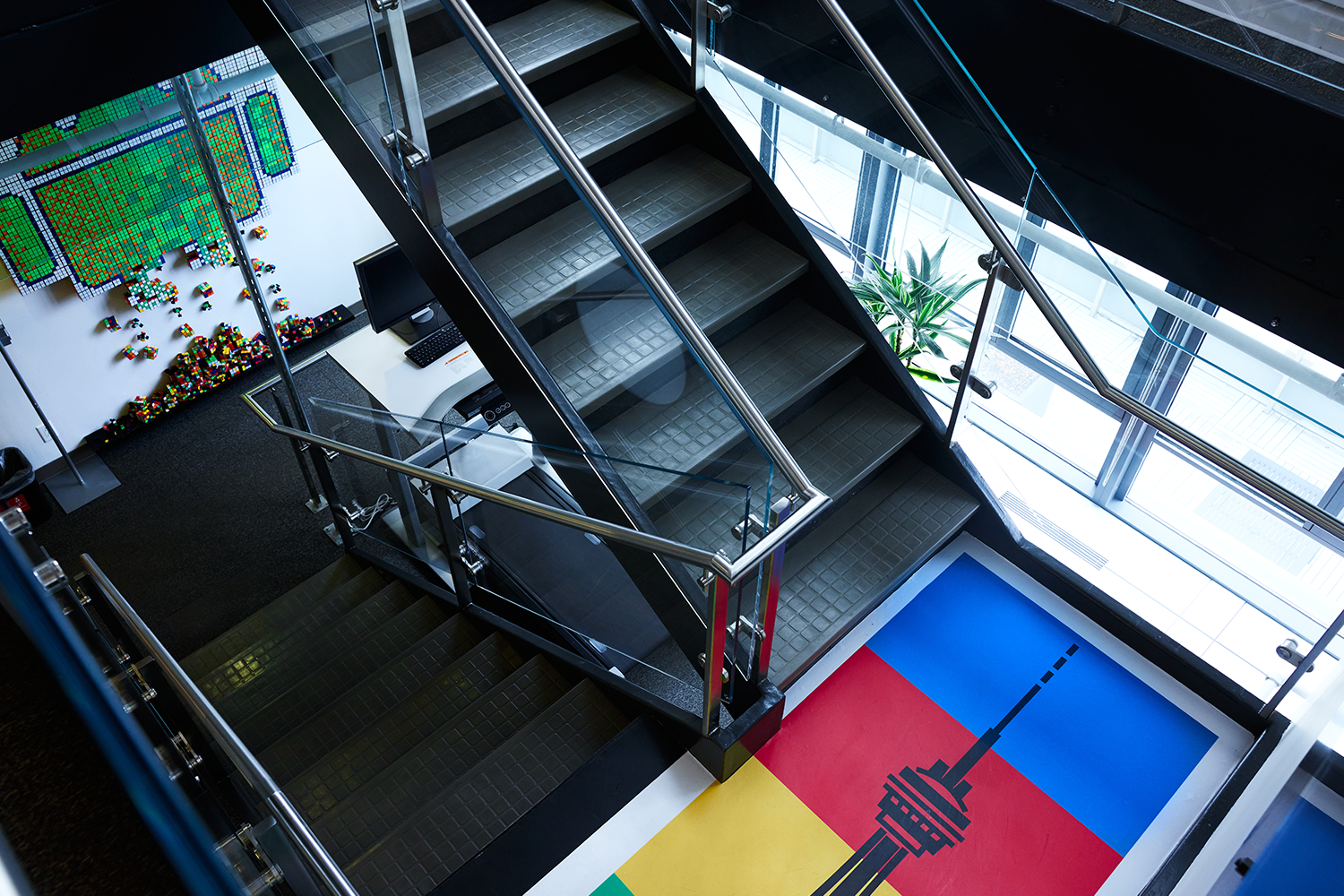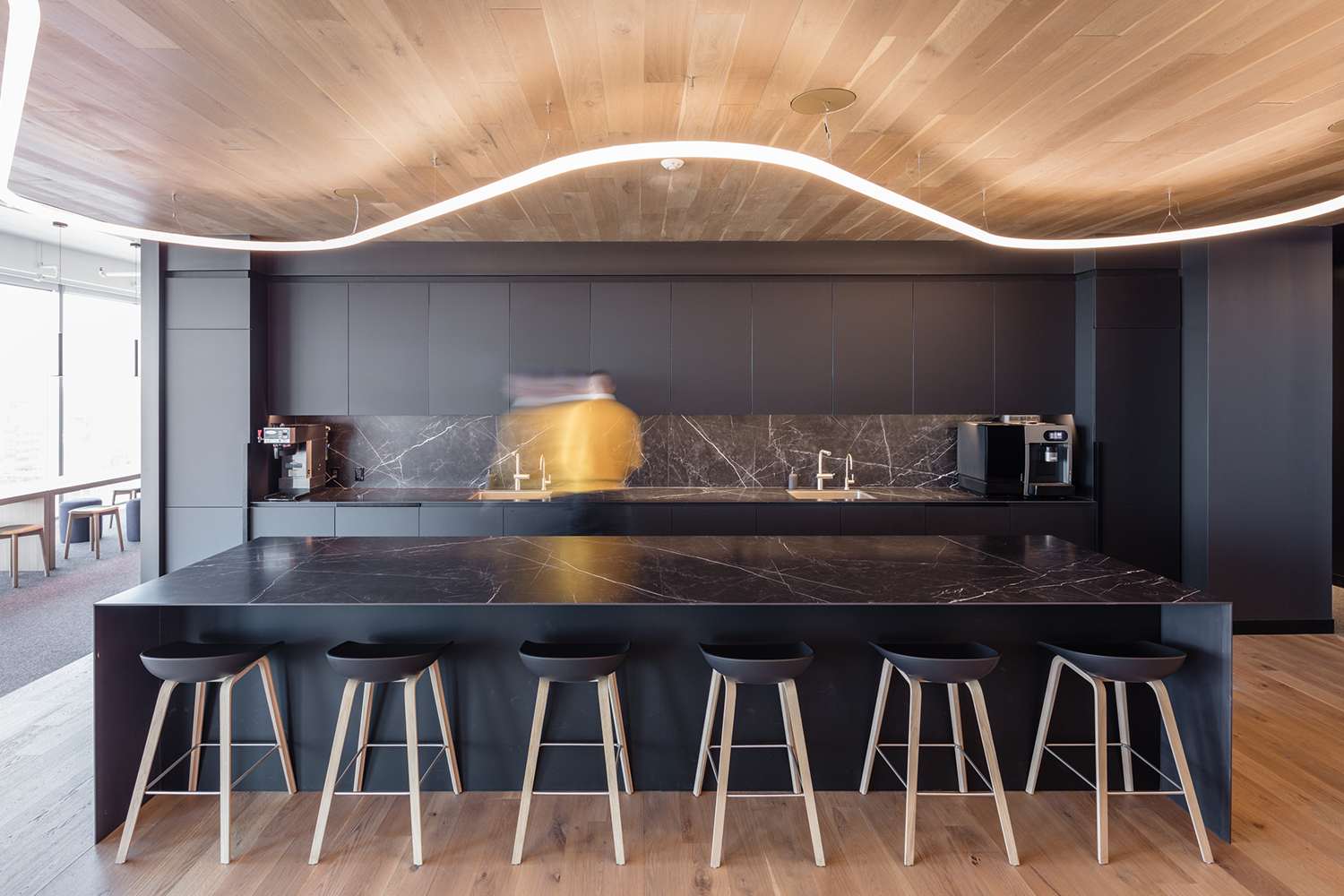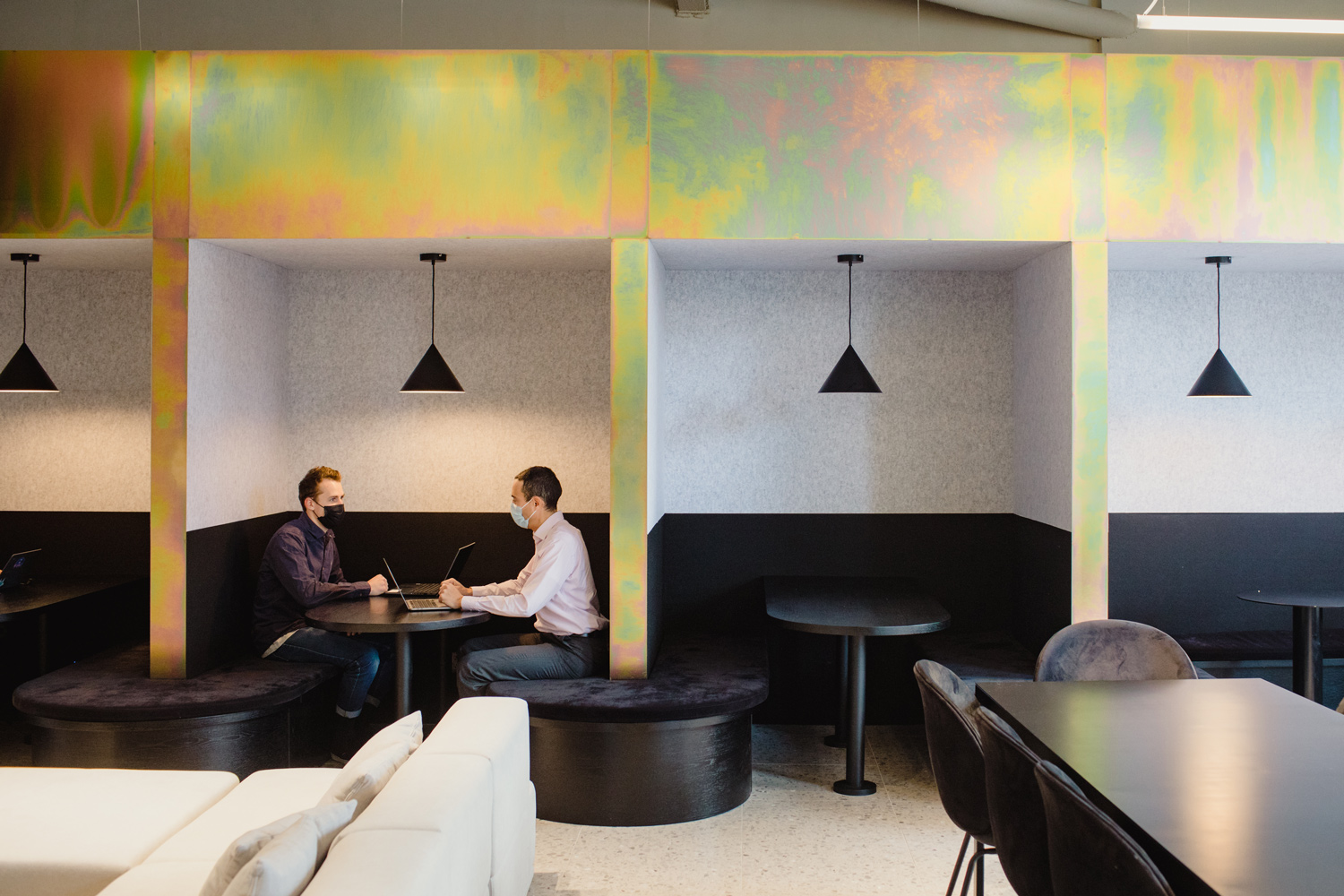Workspace of the Month: Inside Toronto’s Bridge Bike Works
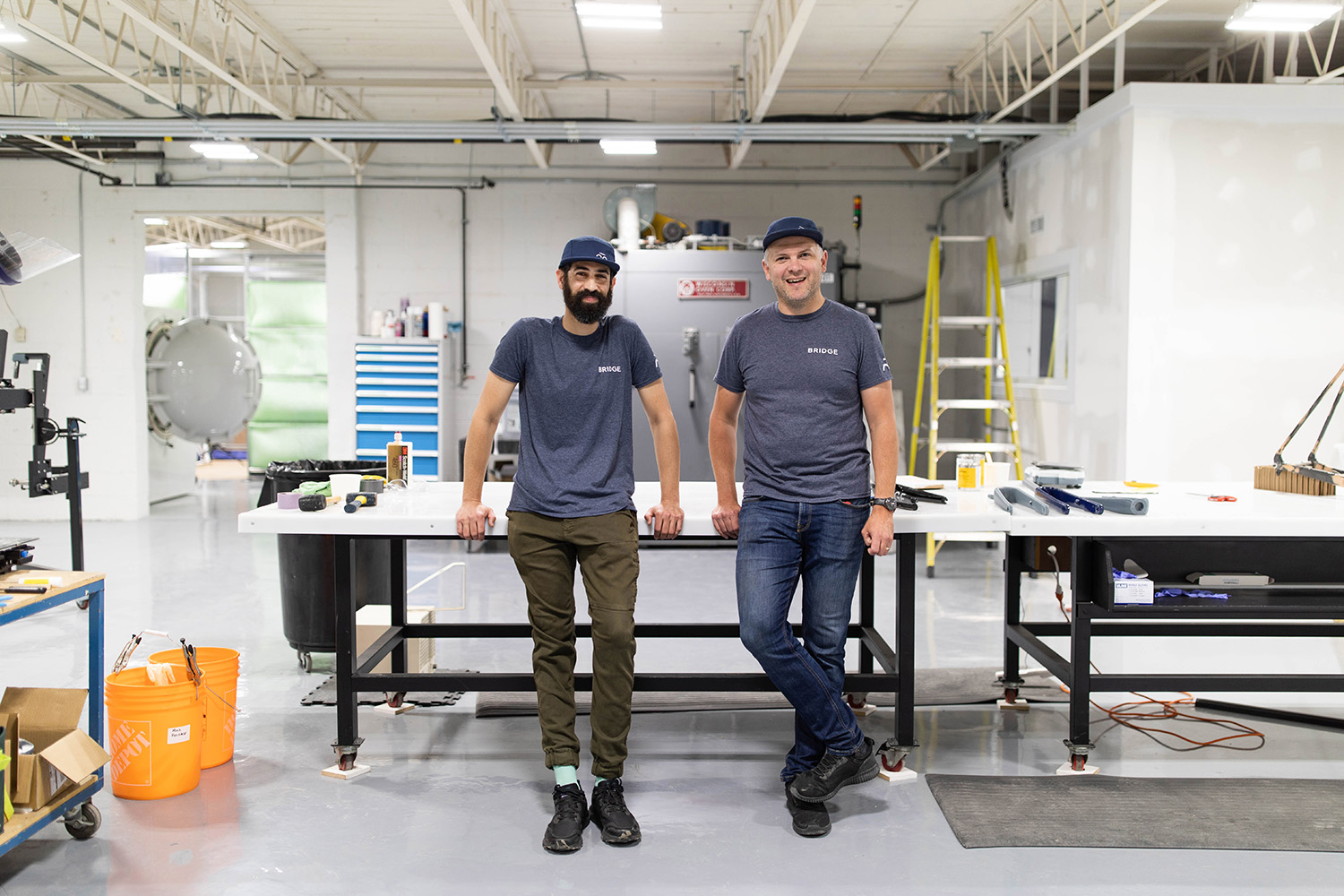
In our Workspace series, CB is featuring interesting, smart-designed and one-of-a-kind spaces across Canada. From innovative home offices to out-of-the-box co-working spaces to unconventional setups—like this beauty company run out of a rural farmhouse—we are looking to showcase the most unique and beautiful spaces from all industries. This month we are profiling Canadian bike company, Bridge Bike Works.
When bicycle sales more than doubled at the start of the pandemic, many homegrown bike manufacturers couldn’t keep up with the demand. Supply chain issues added to the scarcity problem. Bike parts are largely imported—companies order the components they need and then assemble their bikes piece by piece. Frank Gairdner and Mike Yakubowicz wanted to do things differently when they launched their carbon-bike-frame-manufacturing company, Bridge Bike Works, and though they never could have predicted how the pandemic would disrupt their industry, it validated their idea.
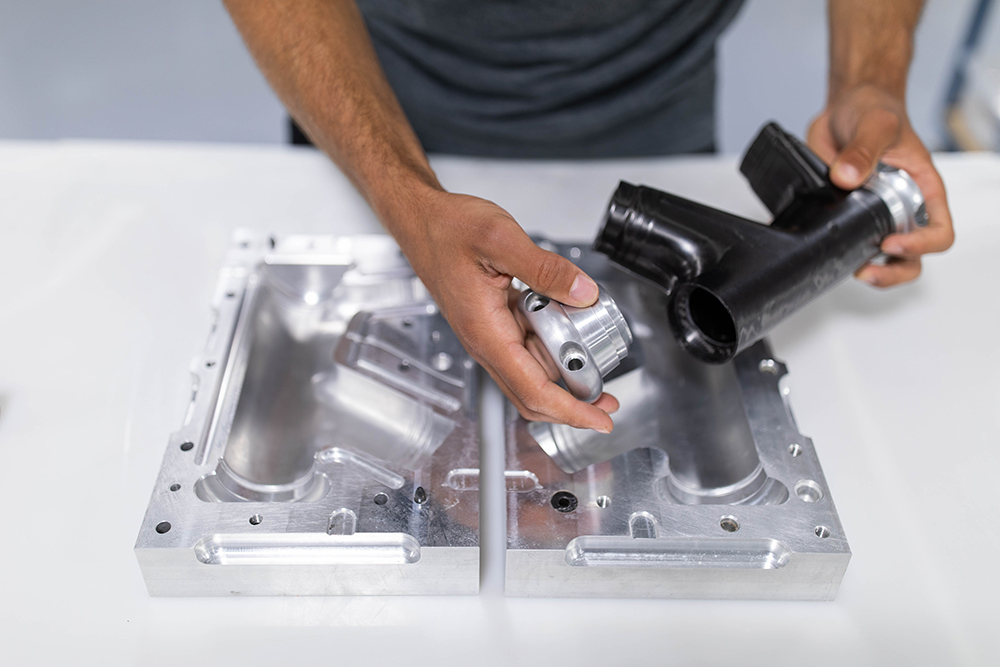
Gairdner, an entrepreneur with a background in manufacturing, and Yakubowicz, a former lawyer and the owner of Toronto bike shop Blacksmith Cycle, teamed up in 2019 to open a production facility for a 100 per cent Canadian-made environmentally friendly and superior carbon bike. “Most people don’t put a lot of thought into where a product is made and how it’s made,” says Yakubowicz. “By doing it all in house, we can have the ultimate quality control.”
The duo spent several months pinning down details for their manufacturing and production processes. They incorporated in November 2020, and in March 2021, Bridge secured a $250,000 angel investment from Los Angeles-based OvareVentures. That summer, they found a warehouse in Toronto’s northwest end.
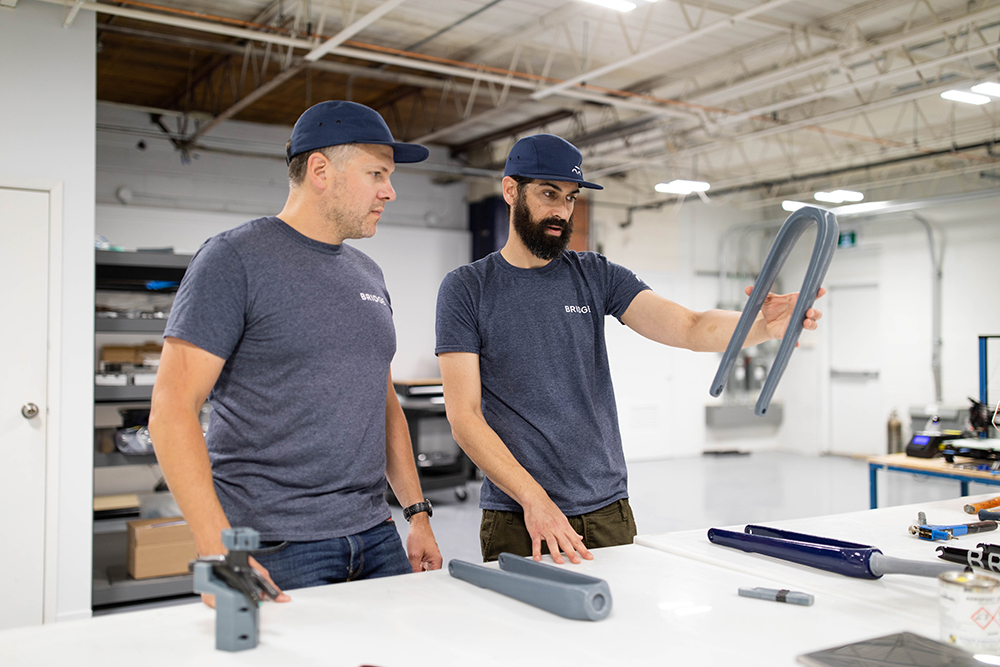
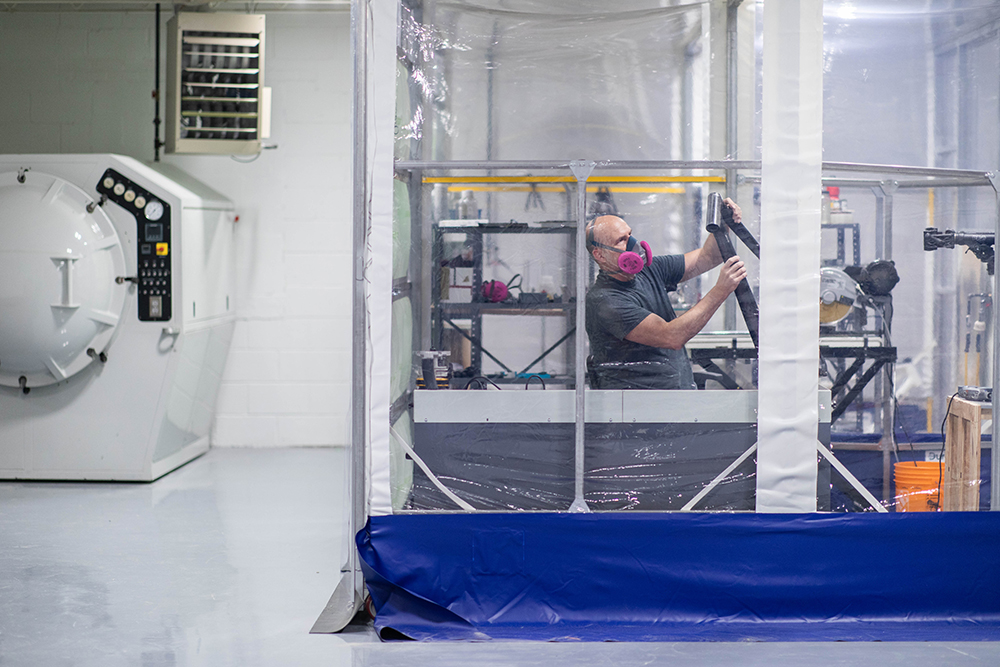
Surrounded by garages and flooring suppliers, Bridge Bike Works is a stylish outlier. The boxy building is painted matte black and minimally decorated with the company’s logo: a line and two half circles that together resemble the shape of a bike. (The branding is by Toronto design firm ReUnion.)
Inside, the 762-square-metre former auto body shop is painted white. Light streams in from the original garage door, which the new owners have left intact. They gutted and then meticulously organized the interior to support every level of production, including design, engineering, tooling, laminating, painting, assembly and shipping. Each of these tasks requires its own space so that the room can be climate- and dust-controlled to protect raw materials, like the hand-laid carbon fibre, which arrives in rolled sheets that must be kept in a walk-in freezer at -20˚C until they’re ready to be cured in aluminum moulds.
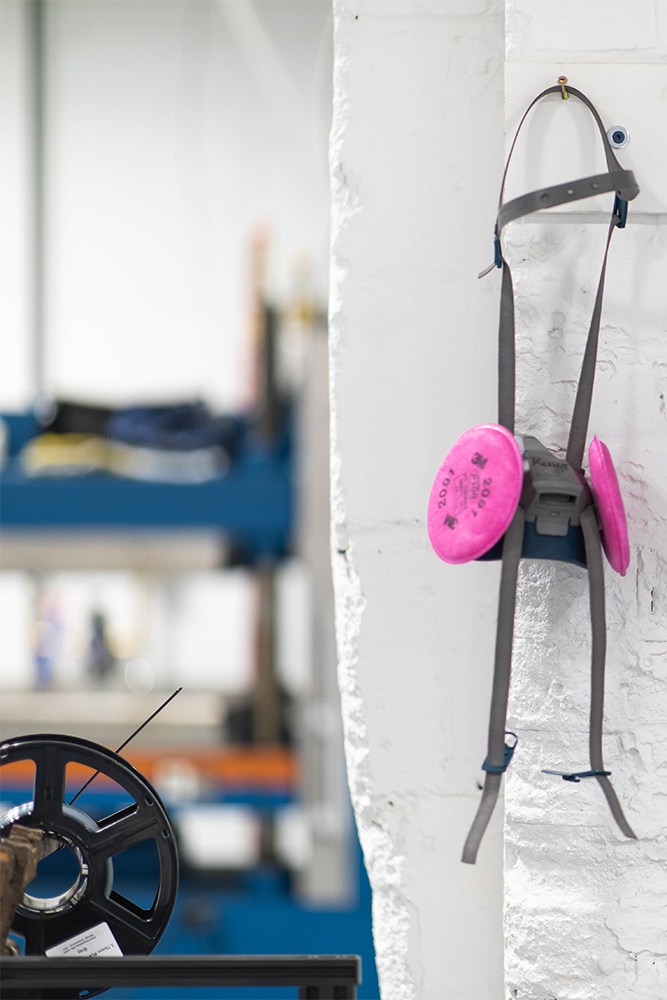
Last fall, Gairdner and Yakubowicz hired a sixperson team made up of designers and engineers to start work in their newly renovated space. Since then, the team has been collaborating on designing, engineering, testing and manufacturing its first model, the all-road Surveyor. The super-light bike will have a limited run of 100 units, out this summer. At $4,999, it comes with a lifetime warranty—and a peek behind the curtains.
“Having this open space right in the city also allows us to have greater transparency and connection with our community,” says Gairdner, adding that customers are welcome to tour the factory. “We can say ‘This is how we built it, this is how we tested it and these are the people behind it.’”
